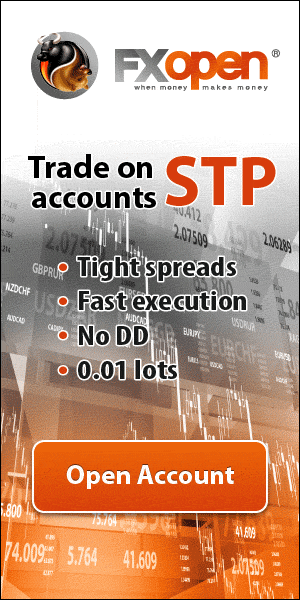Gambling Regulations USA — Casino Security Measures for Australian punters
Hold on — this guide looks at how US casino rules and technical security systems work, but written with Aussie punters in mind so you can compare standards Down Under. Quick win: learn what regulators require in the USA, what security tech casinos run, and which practices actually keep your data and cash safer — then compare that to what you see in Australia. That comparison is useful, so we’ll dig into specifics next.
Short take: the USA treats land-based and state-licensed online casinos very differently from the illicit offshore pokie sites Aussies sometimes use, and that drives strict security requirements. In practical terms you’ll see more on-site audits, integrated ID checks and formal RNG certification in regulated US markets, and I’ll explain what each step means for you when you punt online from Australia. Next up I’ll outline the key US regulators and how their rules map to technical measures.

Major US regulators & what they demand — Aussie punters should know
Observe: state regulators run the show in the USA — quick example: New Jersey’s Division of Gaming Enforcement (DGE) and Nevada Gaming Control Board (NGCB) set licensing, testing and AML/KYC rules. Expand: their typical demands include operator background checks, RNG certification (by iTech Labs / NMi), encrypted payments, and mandatory suspicious-activity reporting. Echo: for Australians who’ve only ever dealt with ACMA blocks or VGCCC rules, this is a heavier compliance environment that forces casinos to document everything. That matters because documentation equals traceability if something goes pear-shaped, and traceability is the heart of security — next I’ll map those regulatory rules to actual technical measures.
Core casino security measures explained for Australian players
Wow — here’s the shortlist: RNG audits, encryption (TLS 1.2+), HSMs for key management, two-factor authentication (2FA), PCI-DSS compliance for card data, KYC/AML workflows, and continuous fraud monitoring. Expand: RNG audits ensure fair odds; TLS and HSMs protect your session and wallet; PCI-DSS keeps card data off risky servers; KYC prevents stolen identity cash-outs. Echo: knowing what each term does helps you choose a safer site rather than just chasing a flashy bonus, and that’s what I’ll cover next with a simple comparison table so you can eyeball the differences.
| Control | US-regulated casinos | Typical offshore pokie sites |
|---|---|---|
| RNG certification | Mandatory, public audit reports (iTech, GLI) | Sometimes claimed, often vague |
| Encryption / Data protection | TLS 1.2+, HSMs, regular pen-tests | TLS sometimes, mixed pen-test transparency |
| KYC / AML | Strict, document-and-database checks | Lightweight or delayed |
| Payment processing | PCI-DSS, bank integrations | Crypto & e-wallet focus, variable KYC |
| Incident response | Formal IR plans, regulator notification | Ad-hoc, often opaque |
Payments & identity checks — what Aussie punters should compare
Here’s the thing. If a US-regulated casino accepts your card, the operator must be PCI-DSS compliant and follow strict AML rules — that usually means faster, traceable withdrawals but heavier KYC. For Australian players used to POLi, PayID or BPAY, note that offshore platforms often add crypto rails (Bitcoin/USDT) and e-wallets instead of local bank rails. That matters because the deposit method affects verification speed and withdrawal friction, so you should weigh convenience against compliance. Next, I’ll explain the typical KYC flow and why it’s both a pain and a safety net.
KYC, AML and player protection — mechanics and timings for Australian players
My gut says KYC delays are annoying, but they stop stolen-card or money-laundering schemes. Expand: common checks include government ID, proof of address, selfie verification, and sometimes proof of funds; in the US-landed markets this is enforced early, which reduces later withdrawal holds. Echo: for Aussie punters, the benefit is fewer surprise freezes and clearer audit trails — and if you want to check promotions with confidence, see their bonuses info for Australian-compatible promos. For a quick look at current promos, check the site’s bonuses page which often explains wagering rules and KYC triggers.
Technical security stack — how US casinos protect your session (and what to watch for in AU)
Short: HTTPS + secure cookies + CSP + 2FA + WAF + IDS/IPS are the baseline. Expand: Web Application Firewalls block injection attacks, IDS/IPS detect anomalies, and behavioral analytics flag odd cash-flow patterns. Echo: if a casino lists these controls and provides audit certificates, that’s fair dinkum — which is why you should ask for or look for those attestations when you sign up, and compare them against what’s common in Australia. Next section lists practical checks you can do before you deposit.
Quick checklist for Aussie punters evaluating US vs offshore casino security
- Check regulator name (DGE, Nevada, or state gaming commission) and license number — that’s your starting point for trust, and it leads into audits.
- Look for RNG audit reports (iTech Labs, GLI) and certificate dates — recent is better and it hints at active compliance.
- Confirm TLS, PCI-DSS and published pen-test summaries — ask support if not visible and note response quality as a trust signal.
- Compare payment rails: POLi / PayID / BPAY are favoured in Australia; crypto or Neosurf indicates offshore convenience but different KYC timing.
- Check support availability (live chat, phone) and whether they handle Australian bank queries — responsiveness predicts how quickly a document snag will be cleared.
Each of those checks narrows your risk before you punt, and the next part explains common mistakes Aussie punters make when judging safety.
Common mistakes and how to avoid them — Australian perspective
- Assuming flashy design = security — always verify regulator and audit docs rather than trusting skin-deep polish; next, learn how to spot fake certificates.
- Using credit cards without checking local rules — remember A$ deposits by credit may be blocked on licensed AU sportsbooks and can have refunds problems offshore; instead, prefer PayID or POLi where available.
- Ignoring small print on bonuses — big match offers may carry 30–50× wagering; read T&Cs before you activate and compare with known AU practices; for current promos see their bonuses details which often spell out playthrough rules.
- Depositing before checking withdrawal caps — some operators have monthly caps or identity-based limits; verify caps during KYC to avoid surprises.
Fixing these stops common traps and keeps your balance safer, and next I’ll answer some short FAQs Aussie punters often ask about US security and legal differences.
Mini-FAQ for Australian players comparing US casino security
Is it legal for Australians to play on US-regulated casino sites?
Short answer: usually no — US state licenses generally restrict play to residents within state borders; however, many operators publish international-facing sites regulated elsewhere. For Aussies, the legal patchwork means you should verify both local laws (IGA/ACMA enforcement) and the operator’s T&Cs before you punt, and expect geo-blocking in many cases which leads into KYC checks.
Do US security measures make offshore sites safer for Aussies?
On the one hand, US-regulated casinos have strong controls and formal IR plans; on the other hand, accessibility for Aussie punters is often limited and those strong controls don’t always apply to offshore mirrors. So weigh the operator’s visible attestations, payment rails, and support quality before depositing. That balance will help decide where to play next.
Who can I call in Australia if gambling becomes a problem?
Responsible gaming resources: Gambling Help Online (1800 858 858) and the BetStop self-exclusion register are the two big local tools, and you should use them if you need limits or self-exclusion. These local protections matter because some offshore sites don’t integrate with BetStop — so choose operators that provide local RG tools where possible.
Mini-case examples — quick real-world scenarios for Aussies
Case 1: A punter deposits A$50 via POLi at an offshore site claiming RNG certification but finds withdrawals delayed 7–10 days pending KYC. Lesson: prefer operators where KYC is front-loaded to avoid long holds, and check bank compatibility first. This practical bit shows why payment rails matter and leads into our final safety tips.
Case 2: Another punter sees an appealing 200% match but the WR is 40× on D+B; mathematically a A$100 deposit + A$200 bonus requires (A$300 × 40) = A$12,000 turnover — impractical for most punters. Moral: always calculate effective cost before you chase a promo and check wagering rules to avoid regret, which brings us to closing recommendations.
18+ only. Gamble responsibly. If you’re in Australia and need help, contact Gambling Help Online on 1800 858 858 or look up BetStop for self-exclusion options. The information above is comparative and educational and does not encourage illegal activity; check local laws (IGA/ACMA) before accessing offshore services, and remember winnings are generally tax-free for Australian players while operators face state POCT rules.
About the author
Experienced gambling-industry analyst familiar with US state regulation and Australian market quirks. I’ve audited compliance checklists, reviewed RNG certificates, and helped Australian punters understand payment rails and safety signals. For more on current promos and exact wagering rules check the operator’s bonuses page and read the T&Cs carefully before claiming offers.
Sources
- State gaming regulators’ published rules (e.g., New Jersey Division of Gaming Enforcement, Nevada Gaming Control Board)
- PCI Security Standards documentation and common industry RNG testing labs (iTech Labs, GLI)
- Australian Interactive Gambling Act (IGA) and ACMA guidance



